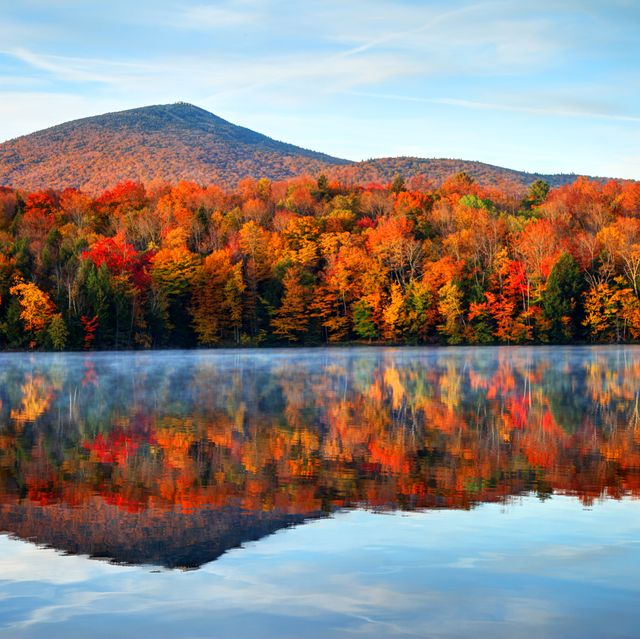Friday
Since today the fall colors are exploding all around us, and since today is also the birthday of poet e.e. cummings, I share a wonderful autumn poem by the poet who loves playing with punctuation, line spacing, capitalization rules, and sentence syntax generally.
The poem begins with the contrast between the glory of fall colors and the dust that they are about to become. “the last immortal leaf is dead,” the poet tells us before further observing, “this is the passing of all shining things.” What has been “glory” is seen as a last spasm of life before we pass “blandly into receptive earth.”
Rather than lament our death, however, cummings counsels us to step into it: “O let us descend.” In fact, he invites “the shimmering wind” to take
these fragile splendors from
us crumple them hidethem in thy breath drive
them in nothingness
After all, this is how creation works, and our best response is to welcome death (“for we would sleep”), stepping into it without lingering and without a backward glance. If we enter into the “serious steep darkness” with “straight glad feet” and “glory girded faces,” we will ruin fear. Recall that the earlier reference to glory—those gorgeous fall colors—now lightens up our faces as we move into the great unknown.
the glory is fallen out of
the sky the last immortal
leaf
is dead and the gold
year
a formal spasm
in thedust
this is the passing of all shining things
therefore we also
blandlyinto receptive
earth, O let
us
descendtake
shimmering wind
these fragile splendors from
us crumple them hidethem in thy breath drive
them in nothingness
for we
would sleepthis is the passing of all shining things
no lingering no backward-
wondering be unto
us Osoul, but straight
glad feet fear ruining
and glory girded
faceslead us
into the
serious
steep darkness
The poem brings other poems to mind. For instance, Robert Frost’s “Nothing Gold Can Stay” laments that passing of the glory—in this case, the glory of early spring
Nature’s first green is gold,
Her hardest hue to hold.
Her early leaf’s a flower;
But only so an hour.
Then leaf subsides to leaf.
So Eden sank to grief,
So dawn goes down to day.
Nothing gold can stay.
I also think of Mary Oliver’s “In Blackwater Woods” and wonder if she was influenced by the cummings poem:
Look, the trees
are turning
their own bodies
into pillars of
of light
are giving off the rich fragrance of cinnamon
and fulfillment…
The poem moves on from this image to one of now anonymous ponds (because no longer filled with light and color), leading the poet to conclude,
Every year
everything
I have ever learned
in my lifetime
leads back to this: the fires
and the black river of loss…
The poem I most think of, however—in fact, I think cummings is having a dialogue with it—is Percy Shelley’s “Ode to the West Wind.” Like cummings, Shelley uses the word “drive” as he addresses the wind:
Drive my dead thoughts over the universe
Like wither’d leaves to quicken a new birth!
And, by the incantation of this verse,
Scatter, as from an unextinguish’d hearth
Ashes and sparks, my words among mankind!
The “leaves” here function as pages of poetry as well as tree leaves. Whereas Shelley imagines the dead leaves leading to new life, however, cummings wishes to remain asleep. So while Shelley ends with the rhetorical question, “If winter comes, can spring be far behind?” cummings appears content with winter.
In this respect, he is more like Oliver, who also embraces death when the moment arrives. Here’s how her poem continues on:
…the black river of loss
whose other sideis salvation,
whose meaning
none of us will ever know.
To live in this worldyou must be able to do three things:
to love what is mortal;
to hold itagainst your bones knowing
your own life depends on it:
and, when the times comes to let it go,
to let it go.
However you see the future, note that all these poets believe we should fully embrace nature’s color when they are at their most intense. Which in Sewanee at the moment is right now.


